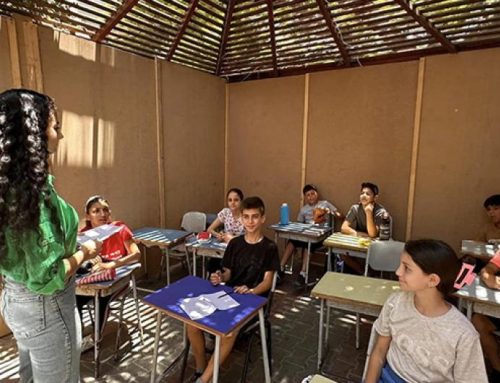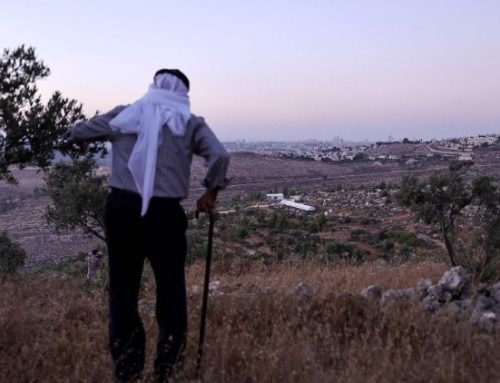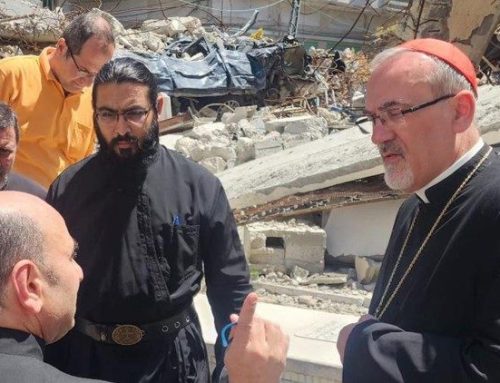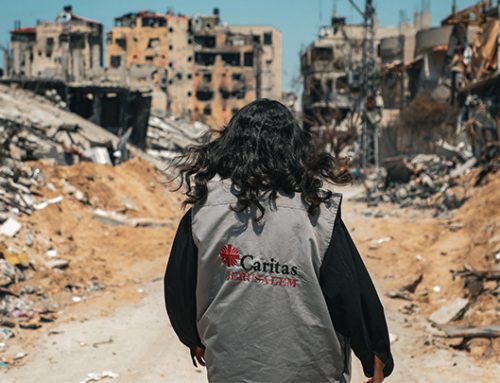As American Middle East Christian communities celebrate the Christmas season, they are doing so with anxiety and apprehension about the future of the countries from which many were forced to emigrate, and about the future of Christians and their religion in the Middle East.
It may have been fashionable to call the latest uprising and revolts in the Middle East as an “Arab Spring,” but Islamic groups have emerged as powerful, political forces. And the future is unclear as to the shape of the governments that will rule in the Middle East as well as the implications they will have on non-Muslims.
Western-friendly governments that have been toppled have suppressed religious extremists for a long time, and in doing so have managed to protect various levels of the freedom of religion and worship. Now it seems many governments, directly or indirectly, will be run by Islamist groups, some with the intention to implement Sharia law, which would have negative consequences to the others. Was it the intention of the U.S. to replace previous regimes with Islamic zealots?
Sharia law stands to restrict the civil rights of non-Muslims and could include rules regarding the building of churches. In October, Egyptian Coptic Christians protested a string of attacks on churches and Christian properties. Members of the Egyptian military fired into the protest and plowed through it in vehicles. At least 24 people died.
Christian Coptics make up over 10% of Egypt’s population. They were part of the Arab Spring uprising and should be treated equally post-Mubarak with their fellow Muslim Egyptians.
Egypt is not the only country where Christians are vulnerable. As a consequence of the U.S. invasion of Iraq, religious and tribal interference from neighboring countries has forced half of Iraq’s Christian population to leave the country. It has led to the destruction of Christian schools, churches and the killing of priests.
Lebanon’s civil war changed the balance among Christians and Shi’ite and Sunni Muslims. Nevertheless, the church hierarchy and the Christian political groups have, to a degree, kept the status quo, despite the fact that many Christians were forced to emigrate. The future there is not yet clear.
In Syria, there is stability among various religious sects, and many Christians feel their religious freedom and their civic and civil rights are equal to their fellow Muslims. Because many of the opposition’s revolting leaders include Muslim zealots, Christian leaders fear the rights of minorities may be threatened as they are in Iraq.
A history of persecution has made it difficult to come up with an exact count of the number of Middle East Christians in the U.S. It is estimated that there are more than six million in America and more than half a million alone in Michigan. We have prospered economically, culturally and politically. They have been integrated into all aspects of American society. They are gradually raising these issues locally, nationally and internationally regarding their fellow Middle East Christians in the Arab world.
American Middle East Christians are bewildered and confused with the Obama administration’s policy toward the Middle East and toward the Middle East Christians. On one hand, it claims it is deeply concerned regarding these events and occasionally condemns the perpetrators. But on the other, it has not produced a policy or an action similar to the action taken by the U.S. government in former Yugoslavia when Muslim minorities were subjected to persecution.
American interests in the Middle East are complex, where oil, the Israel-Palestinian conflict and powerful Islamic lobby are influential. But American Middle East communities have the numbers to influence the future.
As we pray for peace and harmony with all the other religious rites, we hope the U.S. will continue to be the champion of the freedom of religion, worship and human rights, as a signer of the United Nations Universal Declaration of Human Rights of 1948.
Otherwise, the Arab Spring democratization movement will turn into an Arab Winter of destruction of the values important to the U.S. What is the Middle East without Christianity and the Holy Land without Christians?
Ramsay Dass is president of the American Middle East Christians Congress and a Detroit Free Press Guest Writer.





